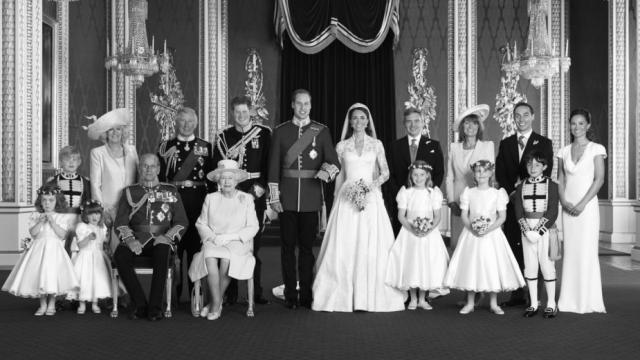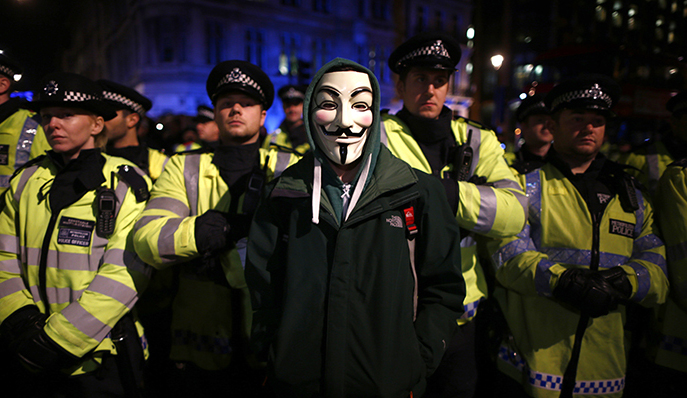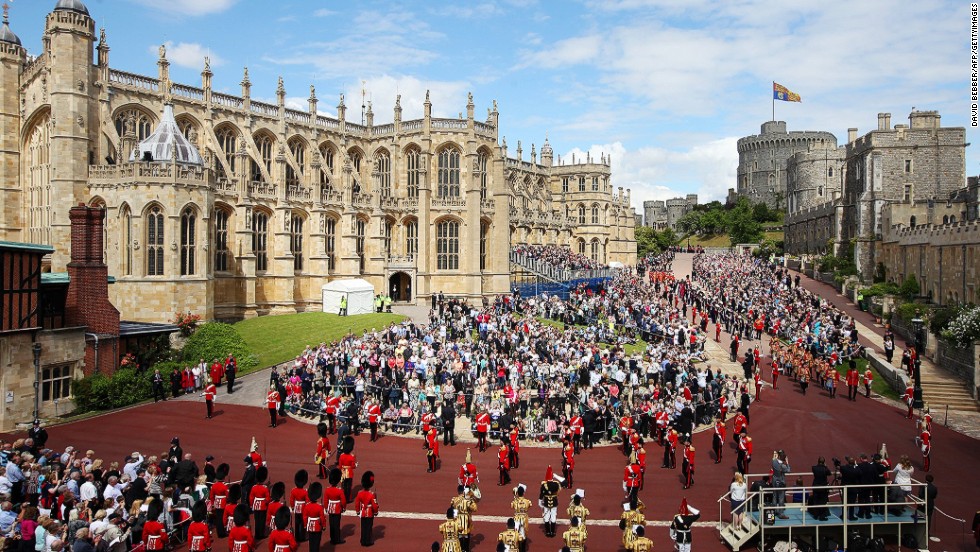
Inheritances of vast wealth and power position the British royals and aristocrats within the global 1%. Yet protests for democracy or equality here rarely draw attention to them. Instead, anger focuses on bankers, politicians, corporate fat cats and their organizations.
Unusually, on November 5, protesters uniting against the 1% headed to Buckingham Palace; even more unusually, the palace was hit with three fireworks.
That day, in over 400 locations across the world, the hacktivist group Anonymous organized the One Million Mask March. It called on the "defenders of humanity" to “remember who your enemies are: billionaires who own banks and corporations who corrupt politicians who enslave the people in injustice.”
Thousands converged on Parliament in London, 407 years to the day since Guy Fawkes failed to blow the building up with gunpowder.
The People's Assembly, an anti-austerity coalition, suggested the day be an annual day of civil disobedience. For this year’s event, bonfires were lit up and down the country. A bonfire blocked Westminster Bridge, which was a warm-up for hundreds of people who joined the masses at Parliament.
Filling Parliament Square was a positive vibe of defiance. Some blew flames. Others raved to sound systems. Different banners reflected the crowd’s anger at the growing surveillance state, fracking, public service cuts. Instead, justice, social equality and a fair political system were the demand.
As riot police lined up around Parliament, a group splintered off heading west. Between 300 and 400 protesters occupied Victoria Memorial, directly in front of Buckingham Palace. The Queen was at home – rather than at one of her other dozen castles, stately residences and palaces – entertaining South Korean President Park Geun-hye.
Less than 100 meters away, the crowd sang along to “Killing in the Name of,” by Rage Against the Machine, and chanted “Off with her head.” In shouting and on megaphones, the anti-monarchical rage focused on recent revelations that the Queen had tried to "apply" for a poverty grant from a £60 million fund designated for impoverished people.
But the greatest excitement was reserved for the three direct hits by fireworks. “It was a kind of carnival mood,” one protester said afterwards. “I suppose we were all surprised we were not all strung up and shot for treason. I was expecting a military response when those fireworks hit: the police did nothing for 35 minutes.”
The crowd also chanted, “Whose palace? Our palace!” in words so loud they echoed in through the open windows of the building -- and encapsulated the mood of the action, which directly targeted the monarchy's wealth and power.
History explains how Buckingham Palace came into the Queen’s hands, while the British monarchy suppressed people around the world. It was purchased by her ancestor, King George III, in 1761. He acquired money by taxing his subjects in England and its colonies. The monarchy also received duties on all trade – an unavoidable monopoly – while backing the whole system with fierce violence against dissent.
The ancestors of people in Britain, North America, Canada, the Caribbean, West Africa, India and elsewhere across the globe paid for the palace, as subjects of George III. Incidentally, the same King’s increase in duties triggered America’s War of Independence.
Thus, it may not be a far stretch to ask: Whose palace? Whose country? Old money still dominates British lives. In 2010, the largest survey of British land conducted in over 140 years showed that the aristocracy still owns more than one-third of the country.
The ownership claims date back to the parcels of land gifted by England's 11th century kings. Discounting the Queen, Britain’s largest landowner is the Duke of Buccleuch, one of whose ancestors was the bastard son of Charles II.
If these injustices carried out by Britain's ruling elites were merely historical, it might rationalize why today's anti-1% movement focuses on corporate elites. But Britain’s royals and aristocracy continue to hold disproportionate power. In a previous article I wrote about aristocrats' land rights which enable them to invite fracking into the British countryside in the face of broad public opposition.
Now, in the face of an austerity agenda that is crippling Britain, the cost of the Royal Family continues to rise. Elizabeth II was budgeted at £31 million ($50 million) in 2012, and the actual amount reached £33.3 million. The total cost to taxpayers to support the Royal Family is expected to rise to nearly £38 million ($61 million) next year.
A further drain on the taxpayer comes from Prince Charles, the second in line to the throne, who has used his position to avoid paying tax on the Duchy of Cornwall, a series of properties, business and lands that he inherited. The same prince also lobbies politicians and even plants informants in government departments.
Like many corporations, the Royal house pays staff poorly on zero hour contracts. Their extravagant lifestyles are also publicly seen as a drain on the environment and resources; many argue that publicly funded helicopters should be used for emergencies and medical traumas rather than for taking royals to horse riding events or golf games.
Like the Royal family, Britain's broader aristocracy gained its wealth in an ill-gotten enterprise: from exploitation during the age of empire, and by dominating the majority of Britain. The structure of British society still perpetuates that power, and private schooling is a key engine driving this. In Britain, 7% of the population attends private school, including the vast majority of the aristocracy and all royalty.
Yet after school, these students disproportionately fill elite positions in government and across society. For instance, over half the current Conservative Party were educated in private schools. The school of Eton is a pinnacle example: it charges students £33,270 per year in fees. Of 53 British Prime Ministers, 19 attended Eton, including David Cameron.
Yet despite the public cost, the inherited privilege and the sheer power over average people's lives, the monarchy remains popular – although its approval rating has dropped considerably since the 1980s. Its popularity peaks on royal occasions, such as the birth of the new royal baby, who will be third in line for the throne if the institution remains. The baby has been called “the most powerful person in London” despite not being able to speak.
On a daily basis, Britain's mainstream media feature uncritical stories of the Royals' everyday lives. Critical pieces are rare exceptions. For the last millennium, supporters of royalty have woven the idea into popular culture that people respect and honor the royals.
Yet, if the calls for social and democratic democracy grow louder, hereditary privilege, like many other aspects of financial and political power that are being taken to an extreme of late, may be suddenly consigned to history.
3 WAYS TO SHOW YOUR SUPPORT
- Log in to post comments


















Comments
flood lighting replied on
flood lighting
Thus, to have such disorientation got rid of, you better sit for window shopping.
flood lighting http://www.sevenbarfoundation.org/inc/lists-flood-lighting